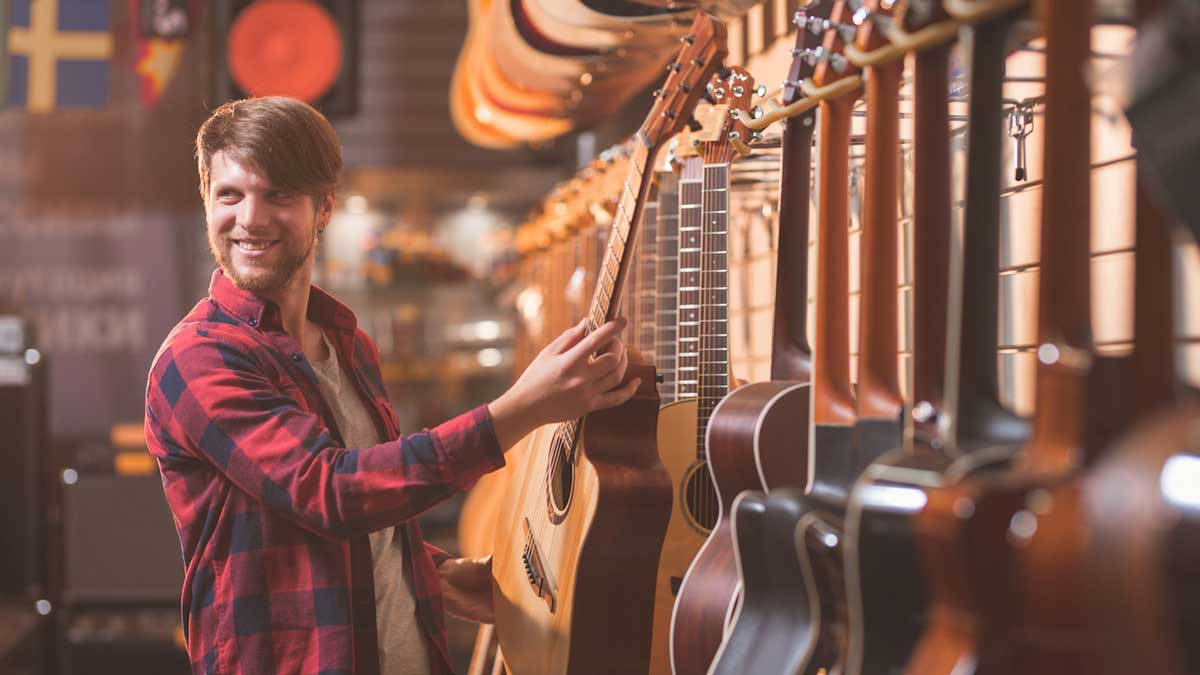Let’s face it, most gifts we get for our kids are luckly to last six months. Either they get lost, get broken or get grown out of. On the other hand, I still think fondly of the gift my parents got me on my sixth birthday – a guitar. Almost 30 years later, that guitar is long gone, but the real gift was a lifelong love of playing music.
Besides the fact that guitars are relatively inexpensive and pretty easy to get the hang of, they make great gifts for kids because they have huge developmental advantages. Not only are they excellent for hand eye coordination and dexterity, many studies have shown they enhance brain development.
Playing the guitar stimulates the part of the brain that links the creative right brain with the rational left brain. If your son or daughter takes up the guitar at a young age, they’ll be getting a head start on coming up with creative solutions to rational problems.
That said, hold off on going out and buying the first cheap guitar you see. While you don’t have to spend a ton, a little research and planning will go a long way.
Pick The Right Size Guitar
This is arguably the most important step in picking out a guitar for your child. I remember back when I started playing, my left hand could barely reach one side of the guitar while my right hand was strumming the other.

While there are no hard and fast rules as far as guitar sizes for kids (just as my two year old wears tshirts labelled for three year olds), the following list is a good rule of thumb for making sure you’re not giving them something hard to play.
- Ululele or quarter sized guitar – Any age up to 5
- Half sized guitar – ages 5 to 7
- Three quarters sized guitar – ages 7 to 10
- Full sized guitar – 10 years and up
Ideally you’ll want to take your child to a music shop to try out the guitars they have and make sure the size is right, but if the guitar is to be a surprise, the above should see you right.
One other thing on size – the younger your child is, the better they’ll fare with an electric guitar rather than acoustic. Electric guitars have thinner bodies that will be easier for smaller kids to maneuver around, and they’re typically easier to play with the left hand too.
Don’t Cheap Out
When I was young, cheap guitars felt cheap. Anything under three hundred was typically pretty junky – I don’t think I had a nice guitar until I was well into my teens.
The problem with getting a cheap guitar is they’re often really hard to play, and studies show that if your child doesn’t get hooked in the first three months, they’ll likely abandon the instrument. That’s why getting a first guitar that’s easy to play and stays in tune is crucial.
Thankfully, these days all the major manufacturers make great kids guitars at very affordable prices. There are still some smaller companies that make cheap instruments that are better served as firewood, but if you stick to the likes of Epiphone (part of Gibson), Squier (part of Fender), Donner, Yamaha and Washburn), you’ll get a great instrument to get started on.
Check that you have everything they need
There’s nothing like the Christmas Morning panic when your son or daughter opens a new toy to find there’s no batteries included, and guitars are no exception. While an acoustic guitar can work as a standalone instrument, you really don’t want to buy an electric guitar and amp, and then realize you don’t have anything to hook them up to each other!
The absolute essentials for an electric guitar are an amp and a cable to connect them together. Next in importance are guitar picks and a tuner (clip on tuners are quite cheap), then a strap to hold the guitar up. If your kid likes the beatles, get them a capo as well to be able to play some of the special tunings.
Luckily these days many manufacturers make bundles to where you can get an entire electric guitar package in a box with nothing left behind. We like the Fender Squire and Epiphone ones the best.
Conclusion
Gifts don’t have to be disposable, and your kids don’t need to only have the latest and greatest gadgets. Guitars have been around for decades and are going nowhere. When you buy your son or daughter a guitar, you might just be buying them a habit they’ll enjoy for life, and while there’s no price tag on that happiness, it doesn’t have to cost an arm and a leg.

